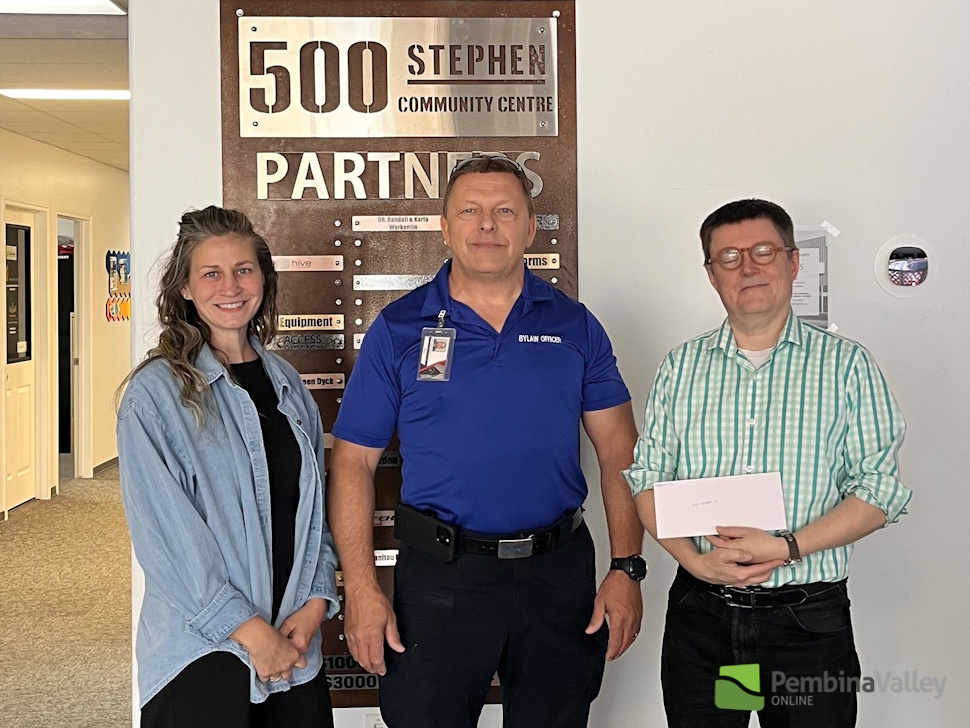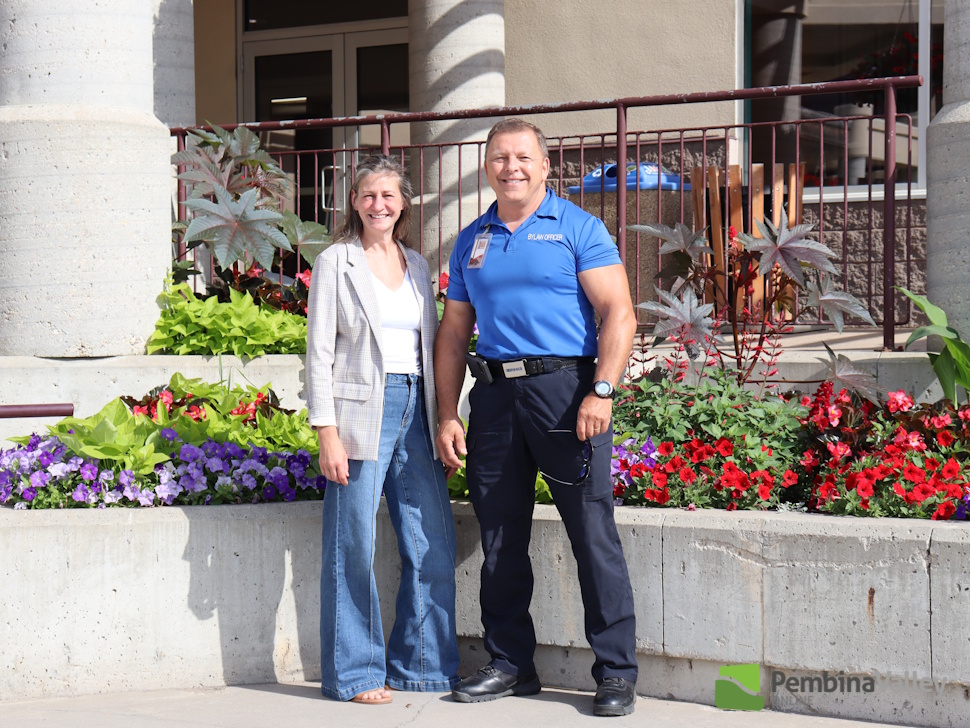Most people, at some point, could benefit from a second chance.
For Kari Kauenhofen, the organization with which she volunteers provides just this.
With referrals from the courts, the Community Justice Committee assists individuals in making amends for past mistakes to avoid criminal charges.
This work — as impactful as it is — has developed through the efforts of a network of community participants.
A team effort
As Kauenhofen puts it, the volunteers who work with the Community Justice Committee (which currently sits at six in number) “try to hold individuals accountable and repair any damage that has been done to our community."
Beyond that, it strives to reintegrate individuals back into the community.
It’s an effort that also involves broader support.
“Many businesses and nonprofits have contributed to this program by adding to the community approach,” said Kauenhofen, who notes that she is especially thankful for Morden Community Thrift Store and the Morden Probation Office for the assistance they provide to the program.
“You don't have to be perfect to sit around this table. We just want people who can give back."
-Kari Kauenhofen on seeking volunteers for Morden's Community Justice Committee.
Kauenhofen said that other agencies and companies in Morden also provide support through engaging with program participants and offering mentorship opportunities and chances to volunteer — all practices that foster a positive attitude of giving second chances.
“It really gives, in some ways, a holistic approach to our community,” she said. “It allows for ... grace, all while holding accountability.”
The city is also a partner in supporting the committee, according to Kauenhofen.
“For Morden, it really is about helping each other,” she said. “The City of Morden does not charge us rent to be able to hold our meetings, which is really incredible.”
Help for those who might be ‘falling through the cracks’
The work that the community comes together to do through the Community Justice Committee not only helps individuals avoid a criminal record through early intervention, but it also connects “those who might be falling through the cracks” with different supports, according to Kauenhofen.
“[The volunteers] all come from different backgrounds or experiences, and we might know of different programs within the region that we can get them plugged into,” she said. “When people come to the table, we do know that they have done wrong, but we also want people to be able to say, ‘Okay, I made a mistake. What can I do now to fix it?’”
Donations to the community
Beyond doling out second chances, the Community Justice Committee's presence in Morden also extends to giving back to the organizations that support it and help make its work possible.
This year, Kauenhofen said that donation recipients include 500 Stephen Street, Many Hands, and Youth for Christ, organizations where placements are made for those who complete community service through the committee.
The committee gave $500 to each organization.
'Is this even the same person?’
For Rick Paracholski, the justice coordinator for the City of Morden, the Community Justice Committee has developed significantly over the 12 years he has been in the position.
When Paracholski began, the program “only dealt with minors.”
“That has really changed. I would say probably right now 60% to 70% of the people we deal with [are over 18],” he said.
Through the years, the justice coordinator has also had the opportunity to see the transformative potential of the Community Justice Committee in the individuals who take part in the program.
In one instance, Paracholski said he worked with someone who seemed like “a lost cause” at first, but surprised everyone after taking a few courses, one of which taught how to deal with anger.
Related stories:
- Eden's Tractor Trek turns 18: A journey for mental health
- A $1.7M legacy of giving: The story behind the Decor Cabinets Charity Classic
“The person came back and talked to us. It was like somebody flipped the switch,” he said. “It was like, is this even the same person?”
Paracholski admitted that the other side, where the committee does its best but does not find solutions, also exists, but the positive cases remain “very satisfying” as a powerful testament to how the program creates opportunity.
Creating comfort and trust
Another part of the Community Justice Committee’s role in the community is forging trust with program participants.
“When we actually meet, we tell everybody that everything in the room is confidential,” said Paracholski. “We try to make [individuals] feel as comfortable as possible. Sometimes that's hard, because if you walk in the room, you're sitting in front of five or six people that you don't know. It takes a little while to warm up. Some do, some don't, but you try.”
“Being able to have a program like this gives that second chance to say, ‘Hey, we see you made a mistake, let's rectify this.’”
-Kari Kauenhofen, volunteer with Morden's Community Justice Committee.
For Kauenhofen, the motivation behind the committee’s actions is to enrich the community through supporting the people in it.
Judgement is not one of the organization’s intentions.
“I think sometimes people forget that we're all human,” she said. “We are here because we want to help our community. We want to see individuals that may not have had the support or the learning chances be able to hopefully come away from here having learned something.”
How to get involved
Kauenhofen added that there are open spots for those who would like to be a part of the Community Justice Committee.
“You don't have to be perfect to sit around this table,” she said. “We just want people who can give back."
Another way to offer support is through education, she says.
“Sometimes I think we just think that people should be able to get a job, be able to pay for stuff and live — but not everybody grew up with somebody that taught them how to make supper or taught them that maybe it's not appropriate to go into somebody's car and steal their stuff,” she said.

“Sometimes I just think that we need a little bit of understanding and grace for individuals that may not have been set up for success from childhood, and also those that may have experienced trauma, so the way that they think might be a little bit different.”
Kauenhofen emphasized that the committee does not condone breaking the law, but it’s sensitive to the background of why it happens.
In her view, this is why the Community Justice Committee is so important.
“Being able to have a program like this gives that second chance to say, ‘Hey, we see you made a mistake, let's rectify this,’” she said.
With files from Robyn Wiebe
